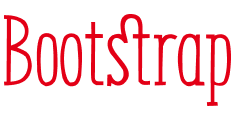Dehydration symptoms might sometimes go unnoticed. It is important to stay hydrated as soon as our bodies show signs of dehydration. But how can we tell whether we’re dehydrated?
Anyone, regardless of age, can suffer from dehydration. Confusion, constipation, dizziness, and weakness are symptoms of dehydration in adults. Elderly folks should drink enough water since they can get dehydrated before they even realize it. The good news is that as we become older, we’re reminded to drink more frequently.

Dehydration symptoms in young people, on the other hand, are difficult to detect because the symptoms are often the same as those of seasonal sickness. Fever, constant diarrhea, and vomiting are examples. Wet nappies or nappies that aren’t as wet as they should be are signs of mild dehydration.
Then, we may question, what is dehydration?
What is dehydration?
Dehydration means a condition in which our body loses more fluids than it takes in, impairing our ability to operate normally. One of the reasons for dehydration is excessive perspiration. It occurs when we exercise strenuously or spend extended periods of time in extremely hot temperatures.
Certain medical disorders might also cause dehydration. Dehydration is a possibility for those with chronic diseases like uncontrolled diabetes. Excessive alcohol consumption or the use of certain drugs can cause fluid loss in the body as well.
Early signs of dehydrations
Our bodies are highly intelligent mechanical systems. The body has the ability to alert us when something isn’t operating properly. In the case of dehydration, early indicators of dehydration include fatigue, headache, dry throat, and slowed movement.
As a result, if a person is sweating excessively and experiencing headaches or vomiting, he or she should drink as quickly as possible. If there isn’t any water available, eating fruits that are high in water will help you keep hydrated.
If mild dehydration symptoms are not treated effectively, they can progress to severe dehydration symptoms. What are the indications and symptoms of mild to severe dehydration?
Mild dehydration symptoms
The first sign of mild dehydration is thirst. This is our body’s cue to drink water. If we ignore it, we will get a dry mouth, lips, and tongue. Headache is the next stage.
If a dehydration headache is not addressed promptly, urine turns black in color and causes dizziness, especially when standing.
Dehydration can progress from mild to severe symptoms.
Severe dehydration symptoms
The initial stage of severe dehydration symptoms might range from intense thirst to rapid breathing. Because of the thirst and rapid breathing, the heart is forced to work harder than usual, resulting in low blood pressure.
If low blood pressure and rapid heartbeat are not managed by medical professionals, they might cause drowsiness and confusion. Severe dehydration can lead to death over time.
How dehydration risk our health
Dehydration can cause some health problems. These dangers to your health include:
- Heatstroke
- Muscle spasm and seizures
- Hypovolemic shocks (low blood presure)
- Muscle damage
- Kidney stones
- Constipation




